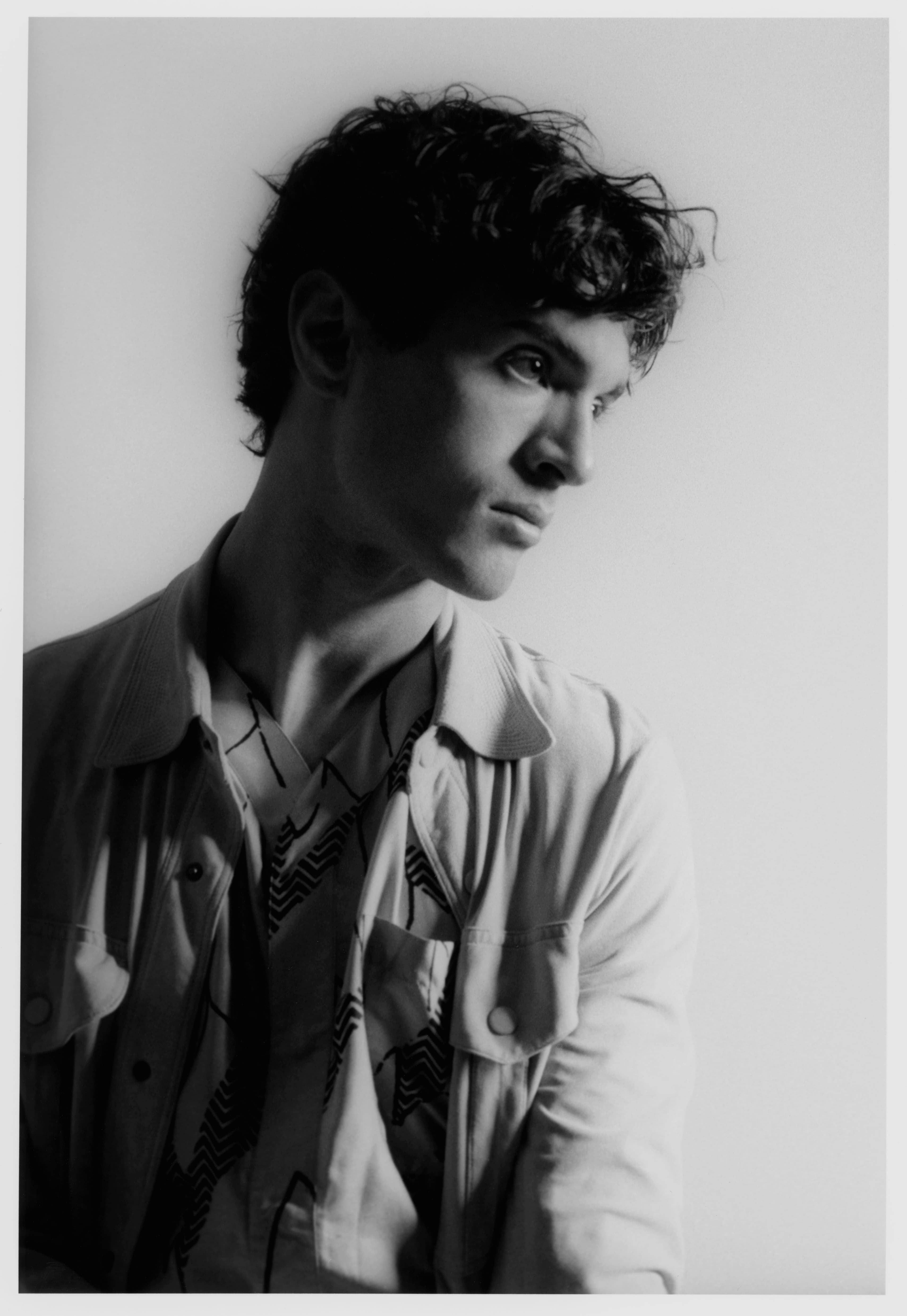
All clothing by Giorgio Armani
Finding the Truth With James Cusati-Moyer
If you’ve logged in to any major streaming service recently, you’ll understand why the New Yorker writer Rachel Syme has declared this season a “Scam Spring.“ This month alone, AppleTV+ offers up Jared Leto and Anne Hathaway as the couple behind the troubled coworking start-up–turned–real estate empire WeWork while Amanda Seyfried embodies the disgraced Silicon Valley darling and Theranos founder Elizabeth Holmes on Hulu and Joe Exotic and Carole Baskin of Tiger King fame get the fictionalized treatment on Peacock. Over on Netflix, true-life frauds have nearly become a category of their own, from The Tinder Swindler, about a group of women conned by Simon Leviev, who presented himself as the heir to a diamond fortune on the eponymous dating app, to Bad Vegan, which chronicles the crimes of the couple behind New York’s celebrated raw vegan restaurant Pure Food and Wine, with pride of place given to Inventing Anna.
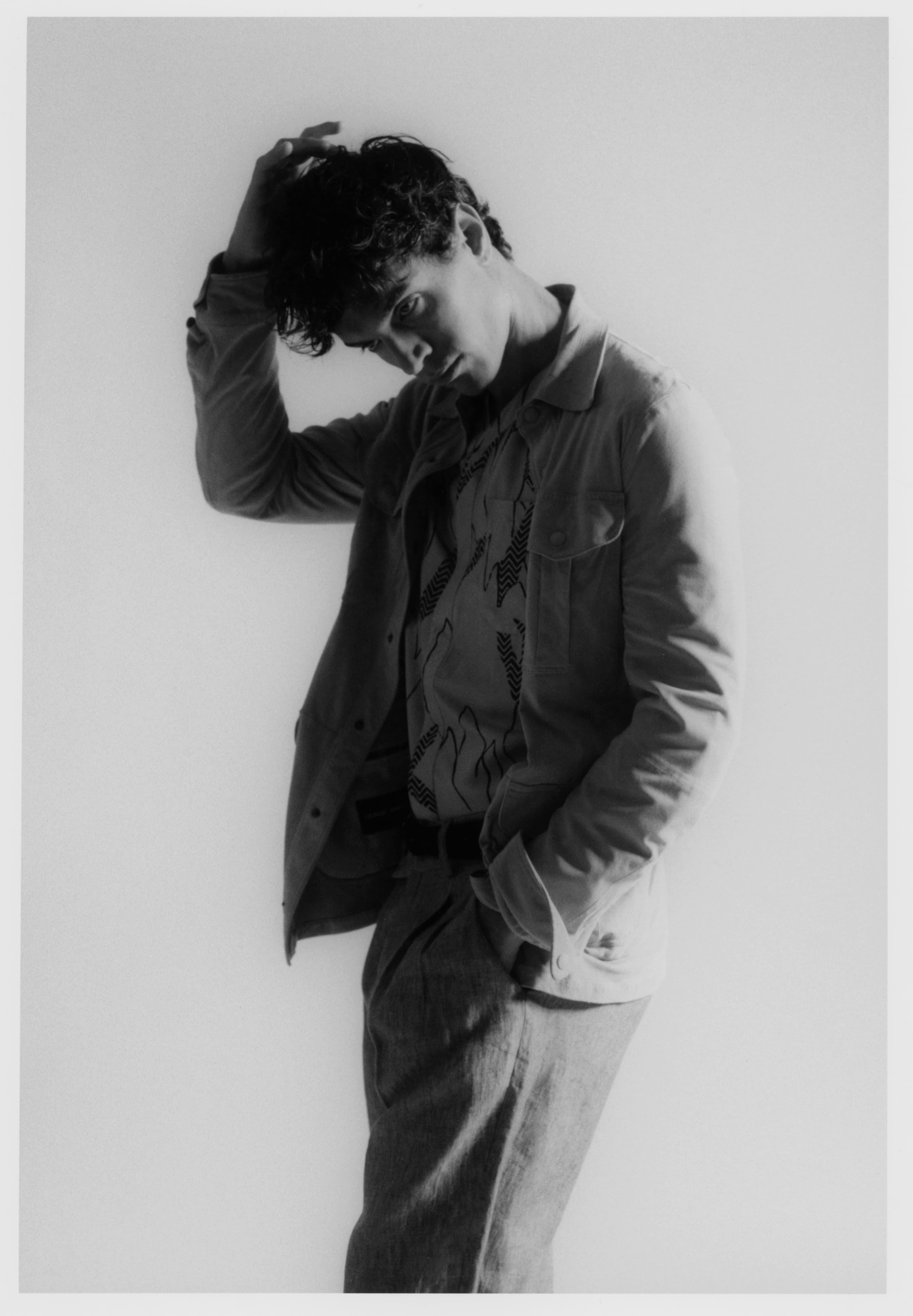
All clothing by Giorgio Armani
Produced by Shonda Rhimes, Inventing Anna recounts the story of Anna Sorokin, played by Julia Garner, a Russian-German con artist who convinced a shockingly broad section of New York’s establishment that she was an heiress named Anna Delvey with grandiose plans of opening a foundation and members’ club in her own name. Over the course of several years last decade, she took advantage of everyone from friends who overextended themselves to cover her expenses and were never repaid to major financial institutions who offered her lines of credit on paltry evidence of her supposed wealth. She chartered a private jet to Omaha for Warren Buffett’s annual Berkshire Hathaway retreat using a forged wire transfer, was evicted from a series of high-end hotels for not paying her bills, and nearly managed to sign a lease for a six-story building on Park Avenue South.
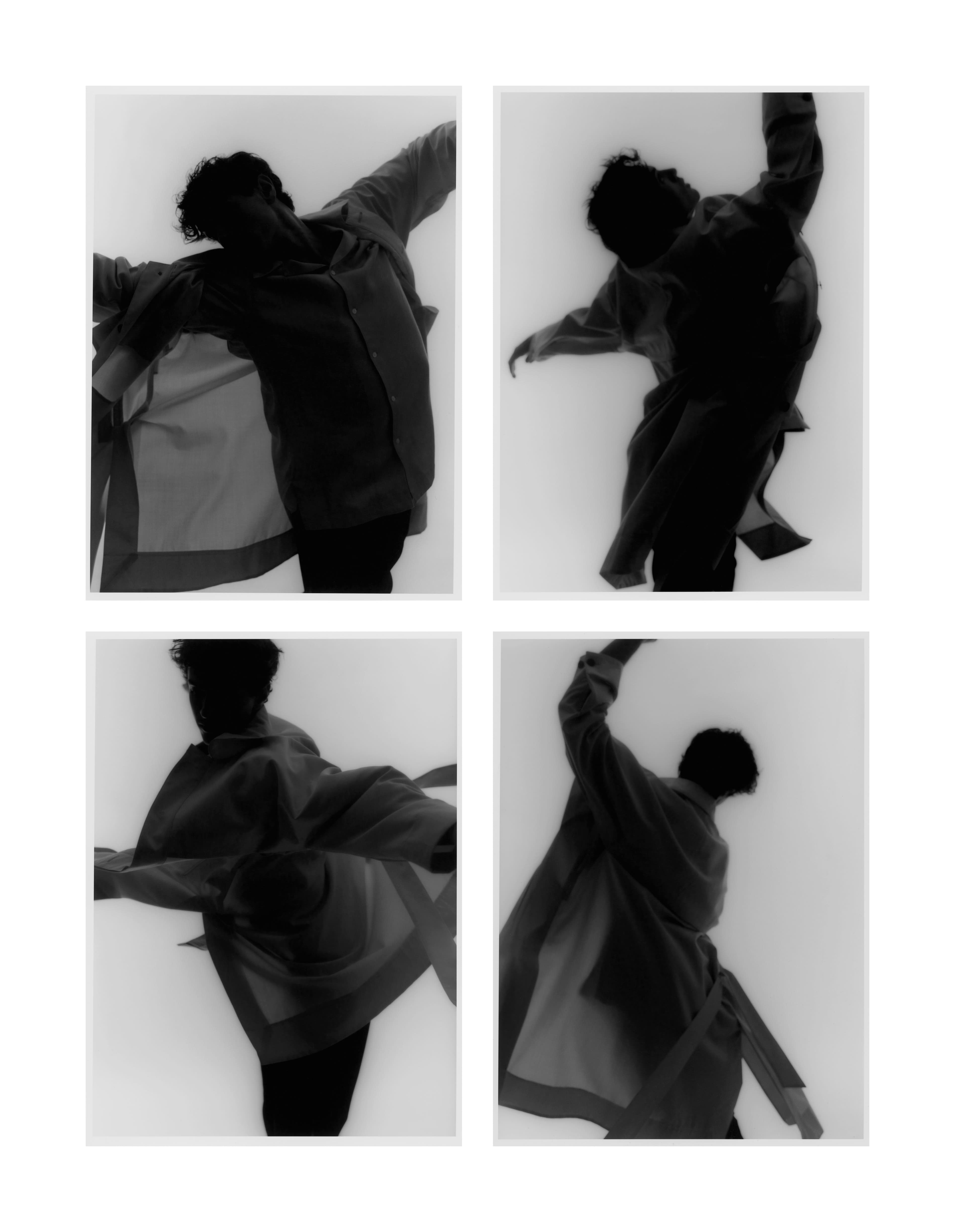
Coat and shirt by Overcoat. Pants by AMI Alexandre Mattiussi.
The nine episodes of Inventing Anna, which premiered last month, paint a picture of 2010s New York as a city overrun by greed, self-aggrandizement, and fake-it-till-you-make-it bombast. Most of Anna’s victims, from the journalist investigating her story to the bankers and lawyers helping her make deals, have their own self-interest at heart, and her crimes can be seen as simply the most egregious examples of a culture with only a tenuous regard for the truth. The rare exception is Val Baron, a stylist who is heartlessly cast aside by Anna after he attempts to determine her identity. Played by James Cusati-Moyer, Val is one of the few sympathetic characters in the series, one who is taken in by Anna’s charms and expects little in return. “I think the only thing that he was getting out of it was a true friendship in a world of fashion and notoriety and fame and labels and names,“ the actor says. “I think he found somebody that he genuinely enjoyed and felt a care and a love for.“
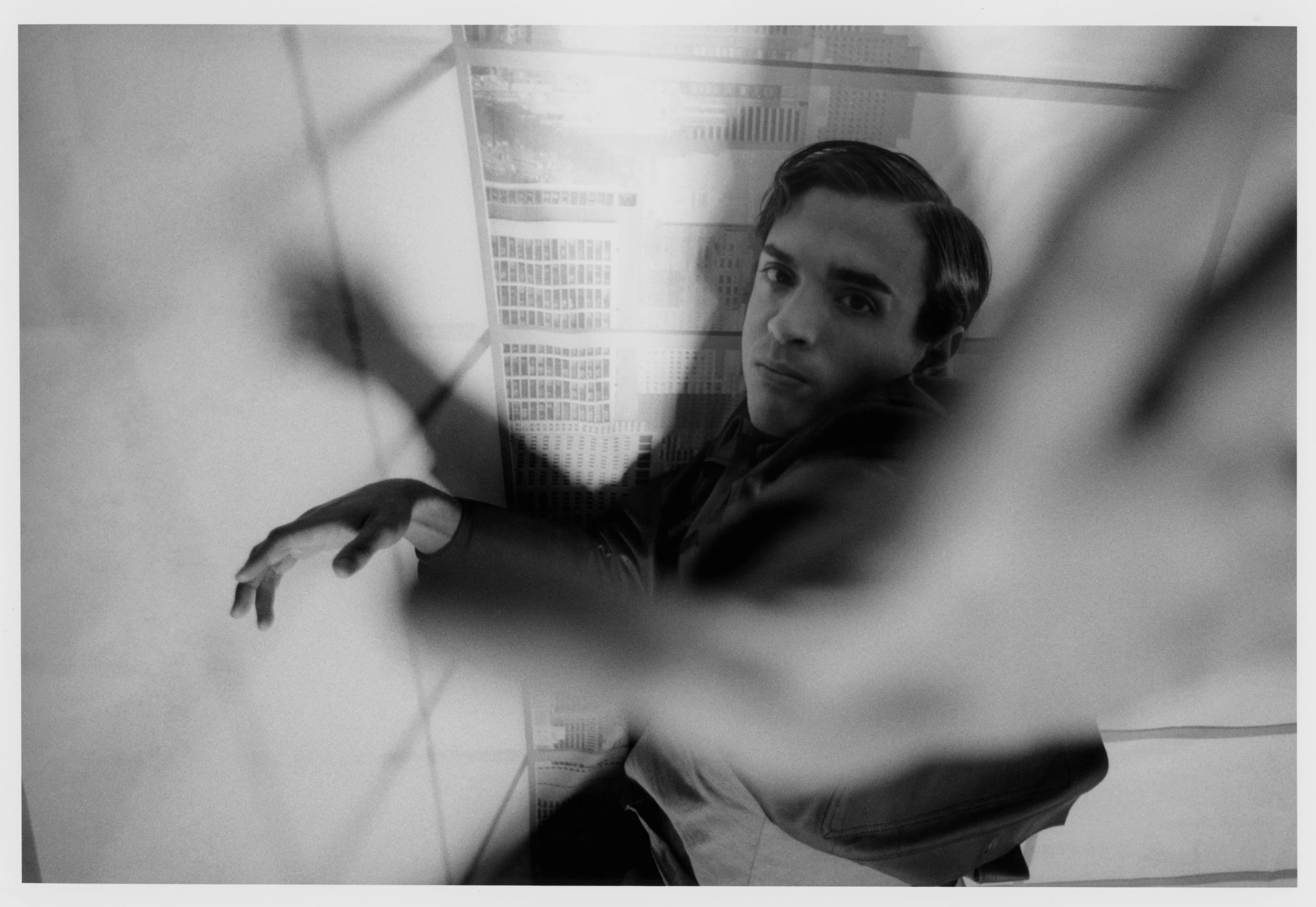
Jacket and pants by Berluti. Sweatshirt by Dior Men.
As the narrator of the second episode, Val serves to establish the circles Anna moved in, from fashion shows to expensive restaurants and exclusive parties. Even after being nominated for a Tony for his 2019 performance in Slave Play, Cusati-Moyer admits that the milieu was foreign to him, and says he made a concerted effort to visit the locations mentioned in the series before filming. “I had to understand the architecture of the time that she was in, the landmarks that she attended, the types of scenes, hotels, restaurants that my character has a lot of narration about,“ he recalls. “I went to Lucien and I went to the Waverly Inn. I had to understand what it was like to sit down at those tables on a crowded night.“

All clothing by Giorgio Armani
In real life, Sorokin has been described as haughty, abusive, and unrepentant, but Cusati-Moyer credits the script for helping him immediately understand her allure and how she was able to trick so many into falling for her schemes. “What helped her was her presence, her power, her energy, the way she commanded a room, the way she held court everywhere she went,“ he elaborates. “[Val] says in the narration that there’s a lot of people that walk around and wear the different designers and want to be famous, but there was something about her that was elegant and old school. I think with that comes a certain intelligence that he was drawn to and attracted to and I think that was the key thing that she used for her power to scam everyone that she scammed, because she had an innate sense of how human beings operate and an intelligence that was sort of otherworldly for New York at that time.“
By luxuriating in the glamorous aspects of Sorokin’s life, the series risks lionizing a convicted criminal whose victims are still dealing with the fallout of her frauds, but Cusati-Moyer says that there is a broader lesson on offer about a culture that is obsessed with perfection, or at least the image of it. In some ways, Anna’s actions are the natural symptoms of a larger sickness, shocking and callous examples of a widespread tendency for self-promotion. “What I hope people take away from the show is that the world of fashion or glitz and glamor and socialite culture or Hollywood or any entertainment sector is not what it seems,“ he says, “that there is a certain facade that is presented to the rest of the world and beneath it there are real, living breathing human beings that are deeply flawed.“
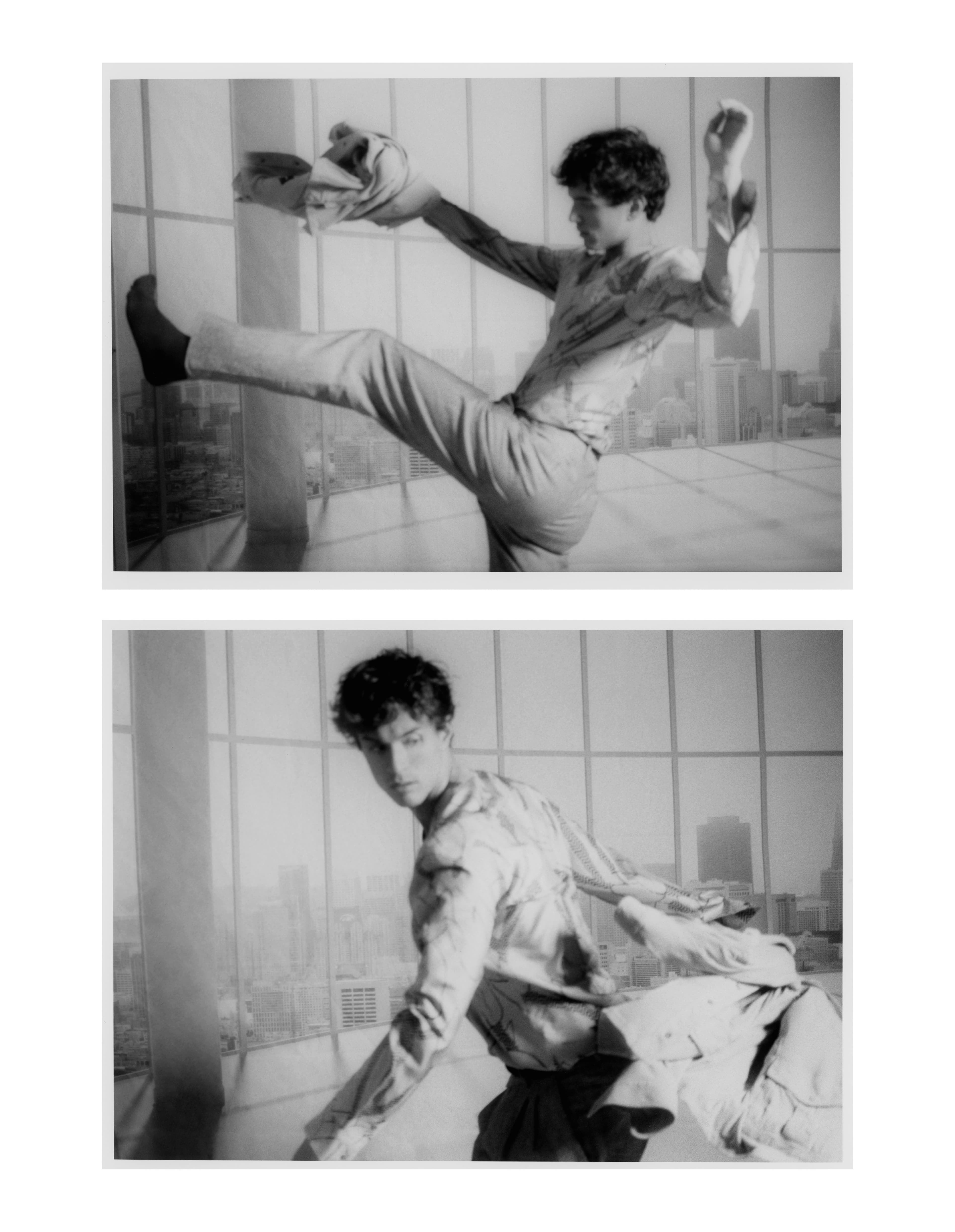
All clothing by Giorgio Armani
For Cusati-Moyer, this focus on honesty and openness is nothing new. Growing up in Allentown, Pennsylvania, he says he was drawn to community theater as “a place for all the misfits and sensitive kids to go to be exactly who they are.“ He attended an arts high school, then college, before getting an MFA at the Yale School of Drama, which led to a friendship with fellow alum and playwright Jeremy O. Harris, who created a role in his revolutionary Slave Play for him. Cusati-Moyer played Dustin, half of an interracial gay couple who participates in an experimental workshop using antebellum slave and master roleplaying to explore their relationship. After a sold-out run at New York Theatre Workshop, the play opened on Broadway as a cultural milestone, marking a provocative sea change for an industry that usually plays it safe. “Jeremy has always been one of my biggest supporters and cheerleaders for my talent and what I could bring to the acting world and who I was,“ Cusati-Moyer says. “He said, ’I’m going to write this for you,’ and he catered to my gifts and he catered to my flaws and he catered to the parts and the depths of my soul that I was scared of and all the vulnerable parts of me that I hadn’t shown the world yet.“
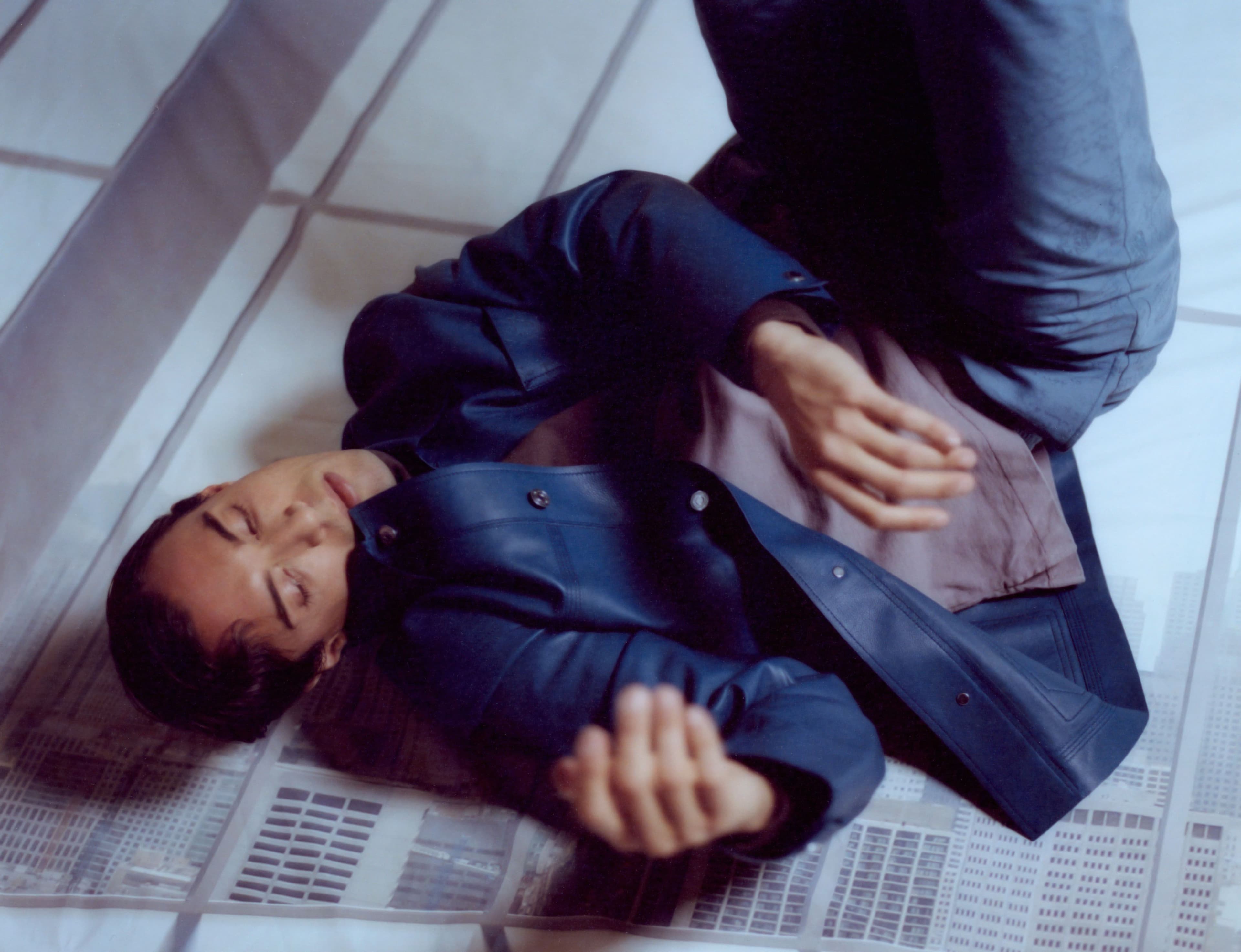
Jacket and pants by Berluti. Sweatshirt by Dior Men.
First Off Broadway and then on, Slave Play was a unique experience in the history of American theater, bringing issues of race, gender, sexuality, power, and privilege to the fore as they rarely had been before. Cusati-Moyer says that the cast and crew recognized from their first performance that they were a part of something groundbreaking. “We did that performance and there was this holy birth that took place that was the existence of this play that [no one] could touch,“ he recalls. “Slave Play existed like its own enigma in the theatrical space in New York and when you felt that vibration, that energy, that echoed in the audience and the reaction, I’ve never felt anything like that. I remember every single night of the first couple previews, it felt like I was jumping off a diving board and I didn’t know if there was going to be water in the pool, and there was. And not only was there water in the pool, but it was overflowing.“
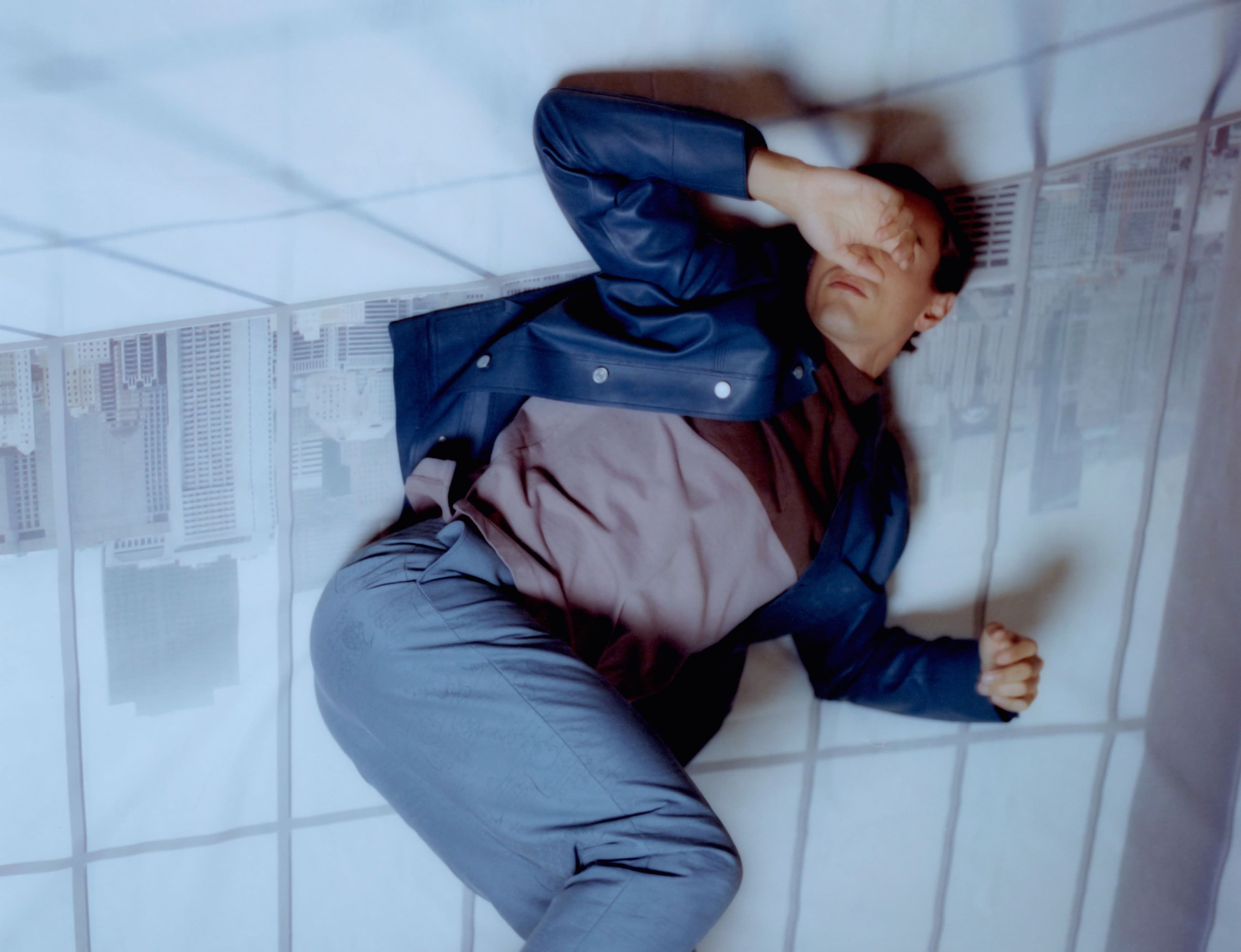
Jacket and pants by Berluti. Sweatshirt by Dior Men.
As an openly gay actor, Cusati-Moyer says that what is most important to him as he branches out from New York stages to Netflix and, this summer, a superhero franchise with Black Adam opposite Dwayne Johnson is staying true to himself while expanding the realm of possibility for himself. Slave Play, he says, helped him understand that. “My career and my life as an actor up until that point, I was still searching for my place and my sense of identity in the industry,“ he recalls about his time in the show. “I was able to find my reflection and my reflection came into solid focus. That came with all the beautiful parts of me and all the flaws and all, but to have that awareness of self was the greatest gift.“
Inventing Anna is now streaming on Netflix. Black Adam is out July 29.
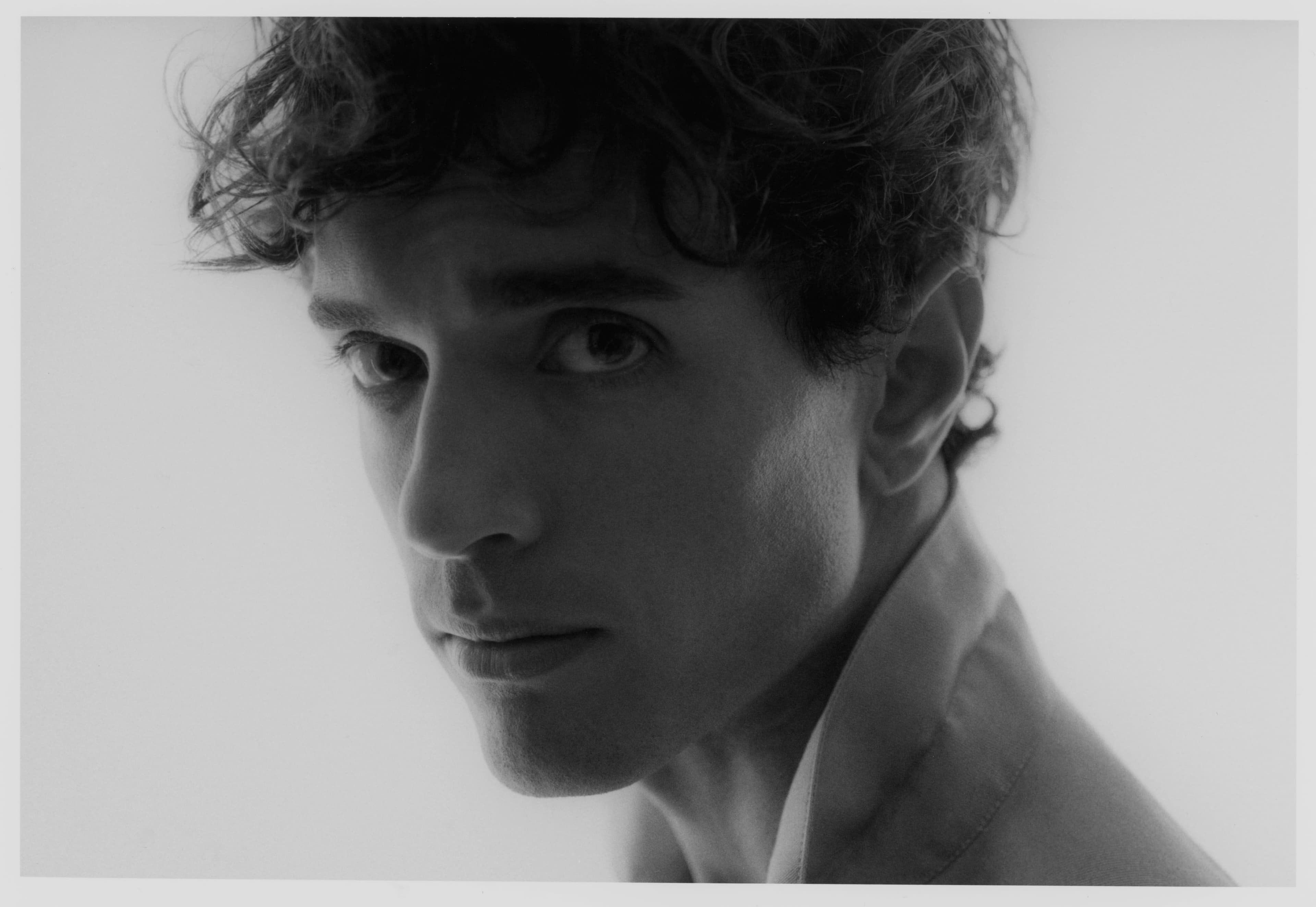
Jacket by Giorgio Armani
As a nonprofit arts and culture publication dedicated to educating, inspiring, and uplifting creatives, Cero Magazine depends on your donations to create stories like these. Please support our work here.






